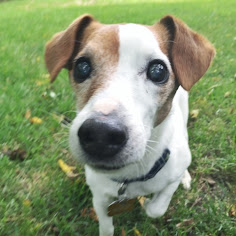February is Pet Dental Health month. I’ll skip the usual ‘you should get your pet’s teeth and oral health tended to’ without adding context.
Since I specialize in caring for pets in their final years, months, days and hours, I’ve had the honor of observing a lot of pets in these stages of life. I see the health challenges and complications they are faced with and need tending.
But more on that in a minute.
Though it’s uncommon for a pet in their final months of life to undergo dental exams and cleanings, they certainly benefit from having them regularly throughout their lives. We know that maintaining overall oral health—including regular exams, X-rays and cleanings addressing any periodontal disease, and any extractions or root canals that need doing—boosts a pet’s health at younger stages. And that sets the stage for helping a pet manage at a time when they’re less resilient, experience more pain-related issues, and need to be handled and interacted with more often: their final months of life. (Think assistance with mobility and administering medication.)
When the inside of a pet’s mouth is in good shape at a time when so many other things can be more difficult to manage because of age-related decline or a life-limiting illness, that’s a nearly-invisible asset.
Why?
Senior and geriatric pets most often experience multiple diagnoses and changes that need managing.
- Cognitive changes impact how a companion animal experiences the world, and this includes behavioral changes like irritability, being withdrawn, and an unwillingness to be interacted with or touched.
- Pets can develop anxiety at this stage of life, or if it’s present, can be exacerbated by all of the things previously mentioned, including increased pain and discomfort.
- Pain is a ball of wax that needs to be addressed on its own merit, and it’s often nuanced and complex at this stage. Osteoarthritis, diagnoses like chronic gastrointestinal issues and two grossly underrated and under-diagnosed sources of pain—eye pain and mouth pain—can impact a pet significantly.
Discomfort and pain in the mouth contribute negatively to all of the above, and then some. In my experience, if a pet is experiencing either, they’re more likely to have a waning appetite, and far less likely to accept much-needed medication. Not eating well and not having pain and other symptoms managed with medication invite at the least a viscous cycle of pain that increases and often becomes more complicated, which can trigger inappetence, as well as nausea, and then back around.
The complicated mouth bacteria that develops with a pet’s poor dental health goes further. In dogs, chafed skin from wearing a harness designed to help with mobility issues, and callouses/pressure sores that often develop on bony protrusions are more easily infected due in part to a pet transferring the bacteria in their saliva to those areas by licking (or in some cases, if they drool a lot). I’ve seen cases where the wounds were hard to heal, needed culturing and long courses of oral antibiotics and topical treatments to try and get them under control were necessary. Need I say much about how dangerous accidental cat bites are can be when a pet is aged and they have sharp, brittle teeth? These interactions happen, and the bite need not be that deep.
I could go on, really. I see time and time again that being proactive with a companion animal’s health early makes the biggest difference in how well their palliative, hospice and end-of-life journey unfolds. And consistent, preventative dental care is just one tool. In fact, I feel like a big piece of the pie. It’s easy to overlook it, I know. It seems expensive to pursue, and many families worry about anesthesia (yes, it’s necessary though quite safe, hence the pre-procedure bloodwork and exam) and a lot to go though in preparing before and a little aftercare. And yet, the returns on that up front investment are far greater, especially when it comes to a lower-stress, less-expensive and more manageable final months with a beloved pet where the human-animal bond is kept intact.
With over 20 years of experience in pet care, Lorrie Shaw is an Animal Hospice Palliative Care Practitioner, Certified Fear Free Professional–pet sitter and owner of Telos Companion Animal Services, LLC. She can be found at lorrieshaw.com.


No comments:
Post a Comment
Thanks for your comment!